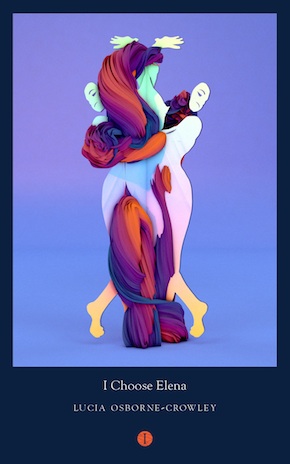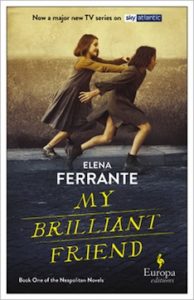Write what you want to forget
by Lucia Osborne-CrowleyWhat do you do with the things that cannot be expressed? Where do you put the things you cannot say? What do you do when words don’t work? In the opening pages of The Argonauts, Maggie Nelson cites Wittgenstein: “the inexpressible is contained – inexpressibly – in the expressed.” This is, she says, why she writes. I’ve discovered that it’s why I write, too.
“Are words good enough?” Nelson asks. Perhaps they are, and perhaps they aren’t. Sometimes words are slippery. Sometimes the expressed contains only a shadow of the inexpressible, sometimes none at all. Words can be deceitful. Words lie. Words fail.
So why do we write, when sometimes the things we need to say the most are unsayable? Because as long as we keep trying, something inexpressible will turn up in the expressed. We try because we have to, because we don’t know what else to do, because we see no other way out, and because our trying is a story in itself.
***
Clare Best was sexually abused by her father for most of her childhood. She never spoke a word of it to anyone until he died. Then she wrote it all down. Her memoir The Missing List tells a story of abuse that starts when Best is young and continues until her father’s final days. It tells a story whose details are haunting and whose images are graphic. What it does most of all, though, is it tells a story that is, by definition, not well suited to storytelling. It does so without apology.
When I sat down to read Best’s memoir, I had lost my faith in words. I wanted to give up on writing as salvation. I was standing on the edge of a precipice, willing myself to jump off, ready to make a sacrifice out of myself and my story to prove that words don’t always work. To prove to others what I finally knew: that some stories cannot be saved. But Best showed me, as so many good writers do, that there was a way out.
Here is the magic of The Missing List: it acknowledges, through language, the limits of language in its truthful creation. It finds a way to use words to express that there are some things that words cannot inhabit. It is a funny kind of magic trick. It acknowledges what is lost, what is missing, what is not said, cannot be said. It allows the past to bleed into the present, and the present to bleed into the past, again and again and again.
***
Trauma evades narrative. By definition, traumatic memories are collected snapshots of experiences that are so terrifying that we become dissociated while they are happening.”
I, like Best, am an abuse survivor. I was abused as a child, raped as a teenager and violated as an adult. I, like Best, like Nelson, am a writer. I have always used narrative as salvation. I don’t know how I would have survived without it.
When I finally came to terms with my abuse, writing about it was the only thing I could think of to do with it. I had always made sense of my life by turning it into a narrative, but after twenty-six years I had finally met my match. I had come up against the one story that cannot be told in the way I knew how I knew how to tell it.
***
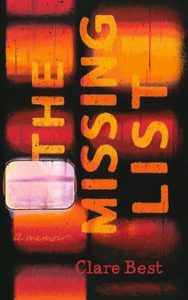
“A tapestry of time – brightly coloured, beautifully orchestrated, emotionally pure.” Andrew O’Hagan
So what do you do with the untamable stories? The ones which never truly began, and never really end, which offer no comfort in their narrative, the ones which are fragmented and messy and alive? What do you do as a writer when you realise that some stories cannot be told in the way the reader wants to hear them?
Trauma evades narrative. By definition, traumatic memories are collected snapshots of experiences that are so terrifying that we become dissociated while they are happening. They are slippery. They do not begin or end. They morph, they dismember and re-member themselves, they shatter and their pieces return in new formations. They are the enemy of narrative.
This is because during traumatic moments, our brain shuts down to shield us from horror. The brain’s flight-or-flight response enters its counterpart phase, freeze, and the mind disassociates while the body numbs. The major muscle groups loosen. Most acute physical sensations are lost and the brain leaves the body, floats away so it will not have to witness the unbearable scene.
***
So here is Best’s challenge: she is telling a story that she half-remembers. She is using a form that has always saved her, as a writer and as a reader, from uncertainty. She is using storytelling to tell a story that cannot be told, because it could not be experienced, and for this reason, cannot be remembered. And Best does this by acknowledging that her story is incomplete. She is honest about memories that don’t quite fit. She tells us what she doesn’t know, and invites us to trust what she does know. This, to me, is pure bravery.
I cannot reach some memories, or can only partially reach them, and that’s both better and worse. Better because I don’t know exactly what happened, worse also because I don’t know exactly what happened. Worse still because I know something toxic remains locked away.
Best’s ‘missing list’ is a reference to all the things she has lost to her abusive father. All the missing memories, all the missing stories, the missing childhood, the missing sense of self, the missing boundaries, the missing lives, the missing endings. Writing a missing list is in itself an act of defiance. But here is the truly revolutionary thing about Best’s writing: she acknowledges that none of us knows, for sure, the extent of what is missing. There is no inventory for what has been taken from us. Even if we do all the work it takes to understand trauma, to understand lost memory, we will never, ever know the extent of what we have lost.
It is the simplest and most complicated thing in the world: we don’t know what we don’t know. Worse still because something toxic remains locked away.
The last item on the missing list is infinite. It is everything that belongs on the list, but that we do not even know is missing. Everything we never had, that we never knew we were entitled to, the things we didn’t get to grieve.
This is the true tragedy of abuse. It takes so much, but in the end it takes our ability to understand what it has taken. It stops us from ever understanding the difference between our stories and the stories of those who have never suffered in this way. To writers, to those who wish for containment, who have always sought refuge in narrative, this is a haunting abyss. It is the cascading indignity of a never-ending story. The missing list is fluid and infinite. Like trauma itself, it lives and lives and lives and lives.
***
One of my favourite poets, Olivia Gatwood, gave a TedX talk last year which she titled ‘We find each other in the details’. This, to Gatwood, is the beauty, the therapy, the essence of being a writer: When we write detail, when we read detail, we take comfort in the shared minutiae of everyday life. Somewhere in the detail we always find connection. It’s why we keep reading. We never know which facts about ourselves, which memories, which elusive truths might be hiding in that detail. What might be hiding in the description. In the treacherous and brave and honourable act of its capture.
In order to stop living it, the story needed an ending. It needed detail. If I could remember what happened, if I could remind my body how I escaped, I could release myself from the need to relive it.”
But detail is the one thing I didn’t have. I wanted to write a story about being raped as a teenager. I wanted to write about the precise architecture of my lucky escape. But I couldn’t, because every time I tried to write the story I found myself searching for detail and coming up short. I had only outlines. I had an empty bathroom, a short, stocky man, a knife and a glass bottle. I could not fill the paragraphs with those things.
As I was trying to write this story, I was also trying to remember it. I was in the throes of intensive trauma therapy, trying to piece the memory together and make it whole again. Not so I could write it down, although I knew that would help, but so I could let it go. In order to stop living it, the story needed an ending. It needed detail. If I could remember what happened, if I could remind my body how I escaped, I could release myself from the need to relive it.
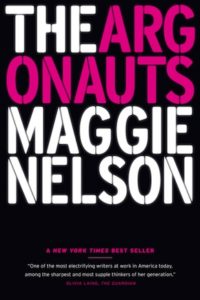
“One of the most electrifying writers at work in America today.” Olivia Laing, Guardian
So I went searching for details. What I found there, to use the laboured phrase, was the devil himself, a monster whose face I couldn’t forget but whose words I couldn’t remember, scattered pieces of a dangerous puzzle. For the first time in my life, I hated the details. I did not want anyone to find me there. I did not want anyone – ever – to see me like that. But I kept going, because I knew I had to. Because the inexpressible would haunt me forever if I did not try to express it.
After months of gruelling work, I had some details. I had pieced some parts of this memory back together. It was terrifying. It was exhausting. It was necessary. I finally have the contours of my story, and I have written it down. I have tamed it as best I could. What I now know about this memory is enough. It is horrifying enough. It is detailed enough. It is enough.
Words are good enough.
But I also knew it wasn’t finished. I knew it would never be. I knew that the work of remembering this event would be lifelong, torturous, insatiable. I realised that I now had my own missing list. I had a cavernous space of lost things, of lost memories, details I will hunt down forever but never find. I had to accept that I don’t know what I don’t know. About my abuse, about its aftermath. About the girl I became because of it. About the girl I would have been if I had been spared.
***
Writing for me has always been a powerful symbol of certainty. Uncertainty terrifies me, and writing is an anchor. It always has been. I wait until I know for sure how to make sense of something, and then I write it down. All of a sudden, I knew that if I waited for that moment with this story, I would wait forever. I realised this story had to be told in its incompleteness, had to be told while acknowledging the reality that it will be reshaped and relived and re-remembered every time I tell it. That is how traumatic memory works.
So I knew I had to test my craft on the one thing it wasn’t designed to contain: a never-ending story.
***
Just before my memoir was printed, I asked someone to proofread it for me one final time. The reader noticed many inconsistencies that I hadn’t picked up on. As I read through the list of corrections, I felt as though I was choking. Everything stood still. My chest begged for air. Inconsistencies were appearing in front of me everywhere. Inconsistencies which all of a sudden I realised could look to readers a lot like lies. The certainty I had created out of this memory by finally putting it into words crumbled before my eyes, and I was unanchored, in free-fall, surrounded by shattered pieces of a clumsy, unscrupulous story.
For all the hours and weeks and months I spent trying to tame this story, trying to put it into words, I had never realised that what I knew might not be enough for the audience. I never realised that other people would expect the kind of story they were used to. The kind where everything is described, remembered, with clarity and consistency. The kind with a beginning, a middle and an end.
I had spent so long thinking about the impossibility of putting my fragmented story into words, being afraid of it, trying it, throwing it away, trying it again, that by the time I got words on a page that made sense to me I thought of this as a success, however imperfect they were. I thought of it as a tiny revolutionary act. An act of defiance. I had taken something that defines itself by its inability to be captured in narrative and I had captured it.
By its own definition, this story evades precise recollection. By adding consistency where there was none in my memory, I was making the story less true.”
But I had spent so long in these thoughts that I didn’t realise that the rest of the world might not read it this way. They might not see the impossibility, the struggle, the search for details. They might just see the failure, the not-quite-right-ness, the inconsistencies, the fragments I haven’t quite tamed.
I combed through every page of my memoir to try and iron out the details. But after several hours of this, I realised I couldn’t. Because by its own definition, this story evades precise recollection. By adding consistency where there was none in my memory, I was making the story less true. If I were to mould this into a story that seemed true to readers who are used to non-traumatic stories, I would have to lie. And there I was, preparing myself to do just that, when the primary reason I wrote this story in the first place was to tell the truth. How did I get here?
And in this moment, a piercing truth crystallised in the dark.
When we ask abuse victims for the details of their stories, we set them up to fail. We want them to make mistakes. That way, we won’t have to struggle with the idea that their stories might be true. We find what’s missing and we yell you’re lying and we excuse ourselves. But here’s the real, tragic fact of it: the fragmentation of our memories of abuse are the strongest evidence that they are true. If the experience was traumatic, it will not be able to be accurately recalled. If we are telling the truth, our story will be fragmented.
So instead of accepting this well-known fact about traumatic memory, we ignore it, and we take the very thing that makes abuse memories what they are, the thing that separates them from other memories, the thing that makes them genuine and inarguable and true, and we use it as evidence of their falsehood. It’s a trap.
I have spent so much time thinking about abuse, about its aftermath, what it does to us, how we are silenced, how we are disbelieved. And yet it wasn’t until this moment that I realised just how deep the ensnarement goes. If we speak up about abuse, we are subject to a cross-examination focused on the very things we will not be able to provide if the story is true. Beginnings. Endings. Detail. Timelines. Narrative. We are faced with question after question about what is not there, and every instinct tells us to give the audience what they want, to inject consistency where there is none to be found.
This is exactly the urge I felt. But more important than speaking about abuse, more important than writing about abuse, I realised that day, is resisting the urge to act on this feeling. Because in accusing me of lying, the audience is trying to bait me into destroying the truest part of this story. The part that’s missing. The part I don’t remember, can’t remember, will never remember, never even knew, cannot know, will never know: The part that is lost, not in spite of the story’s truthfulness, but because of it.
***
I was so frightened of not being believed that I was suddenly desperate to perfect my story. But now I know that the imperfection is my story. If I want people to understand the tyranny of traumatic memory – and believe me, I do – then I must protect the integrity of my missing list.
Towards the end of her memoir, Best writes:
Making this book has been a strange kind of salvage operation.
It tells my individual truth, the testament of one witness to the immense confusion and suffering that an abusive human being can cause.
It’s very real, though it hasn’t always felt real. It’s quicksilver. It’s lead.
Writing it has been the best I could do. It has also been the most difficult thing I have ever done.
My book, like hers, is the testament of one witness to the immense confusion and suffering that an abusive human being can cause. Putting this book into the world in a way that is honest about my memory will make it easier for people to tell me I am lying, that I am wretched, a rotten thing. It will keep me awake at night. It will break my heart. Some days it will drown me. Some days I will believe it.
A friend often says to me, ‘When you feel like giving up, remember why you started.’ Honesty is why I started. So I have accepted the fact that this story is imperfect, but it will be, for the first time, one that I have chosen.”
But this is the cost of telling the truth. I knew that when I first thought to write this book, and I know it now. To try and minimise the pain and exposure I feel would be to give up on the one thing I am trying to do above all else: to be honest. A friend often says to me, “When you feel like giving up, remember why you started.”
Honesty is why I started. So I have accepted the fact that this story is imperfect, that people might try to destroy me in the details. It will not be an easy ending, or a pleasant one, but it will be, for the first time, one that I have chosen.
***
For me, no writer better captures Maggie Nelson’s view about the inexpressible than Elena Ferrante. Ferrante’s Neapolitan novels do the taxing work of trying to capture the truth of one woman’s life from beginning to end. It is a life beset by violence and fear, but also one that finds love and joy and meaning. It is exquisite and vulnerable and honest. Reading Ferrante’s novels was the first time I felt I might one day be able to capture in words the trauma that was living and breathing inside me.
One of the last lines in her final novel is this: “Unlike stories, real life, when it has passed, inclines towards obscurity, not clarity.” It is an admission that sometimes words are not good enough, and an expression of her determination to believe in them anyway. To try and try and try to express the inexpressible. To write and write and write no matter how much we struggle, no matter how much we falter, because doing so is necessary and brave.
I named my book after Ferrante because she taught me this vital lesson. I called it I Choose Elena because I want to choose her dedication to words, however imperfect. I want to choose that over and over and over again. I want her to always remind me that words are good enough.
So I present my story as it is: incomplete, imperfect, inconsistent – and desperately, wretchedly true.
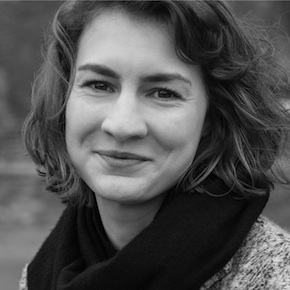 Lucia Osborne-Crowley is a writer and journalist. Her news reporting and literary work has appeared in ABC News, HuffPost UK, the Guardian, The Sunday Times, Meanjin, The Lifted Brow and others. She works as a legal academic in association with the University of New South Wales in Sydney. I Choose Elena, her first book, is published in paperback by The Indigo Press (£7.99).
Lucia Osborne-Crowley is a writer and journalist. Her news reporting and literary work has appeared in ABC News, HuffPost UK, the Guardian, The Sunday Times, Meanjin, The Lifted Brow and others. She works as a legal academic in association with the University of New South Wales in Sydney. I Choose Elena, her first book, is published in paperback by The Indigo Press (£7.99).
Read more
@LuciaOC_
@PressIndigoThe

